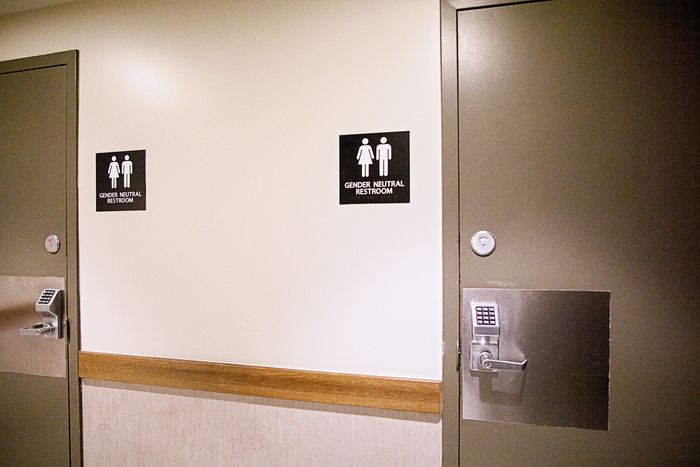
There are, as of 2018, four truly public toilets open 24/7 in the City That Purportedly Never Sleeps. The rest of our publicly accessible bathrooms — about 1,100 of them, seemingly a sizable number until you start doing the arithmetic for 8.8 million people — are closed and locked at night. If you need to go and you can’t get to one of those, you have a few choices. Should you be geographically lucky, you can visit a big open building like the Port Authority Bus Terminal, whose restrooms, once horrifying, are now surprisingly okay. You can, perhaps, saunter into a hotel lobby or similar large building — that is, if you’re respectably dressed and look reasonably affluent. You can, if you are cross-eyed and cross-legged with desperation, despoil the corner of a building or subway station, risking a summons. Or you can do what most of us do, which is find a Starbucks. You don’t have to buy coffee while you wait in line, but you can, at least if you don’t mind accelerating your next bathroom trip.
That option, however, may soon disappear. Howard Schultz, citing unspecified concerns about “security” and “hardening our stores,” said at a New York Times forum that the company was reconsidering the open-to-all bathroom policy that it set in place in 2018. He is using the language of preventing gun violence, but you have to assume that this is mostly about allowing access by unhoused people and the effect their presence has on paying customers in the coffee shops. Starbucks is within its rights to do this, of course. It’s a private company, and its bathrooms are not civic property. Most businesses — in New York City, at least — won’t let noncustomers use the toilets; many restrict their use to staff only.
And therein lies the deeper problem. We have, inarguably, a severe access-to-bathrooms problem in this town. Apart from a brief, laudable, and unfulfilled Bloomberg-administration attempt to solve it, we as a city have ignored it indefinitely, instead allowing the free market to kinda-sorta-partway make up the difference when it feels like it. The urgency (and I do mean urgency) of installing proper public facilities in every park, or on every fifth street corner, the way a modern city ought to, has been pushed off the agenda over and over for the simple reason that we let Starbucks and its corporate kinfolk worry about it. And now they may be permanently down the tubes.





